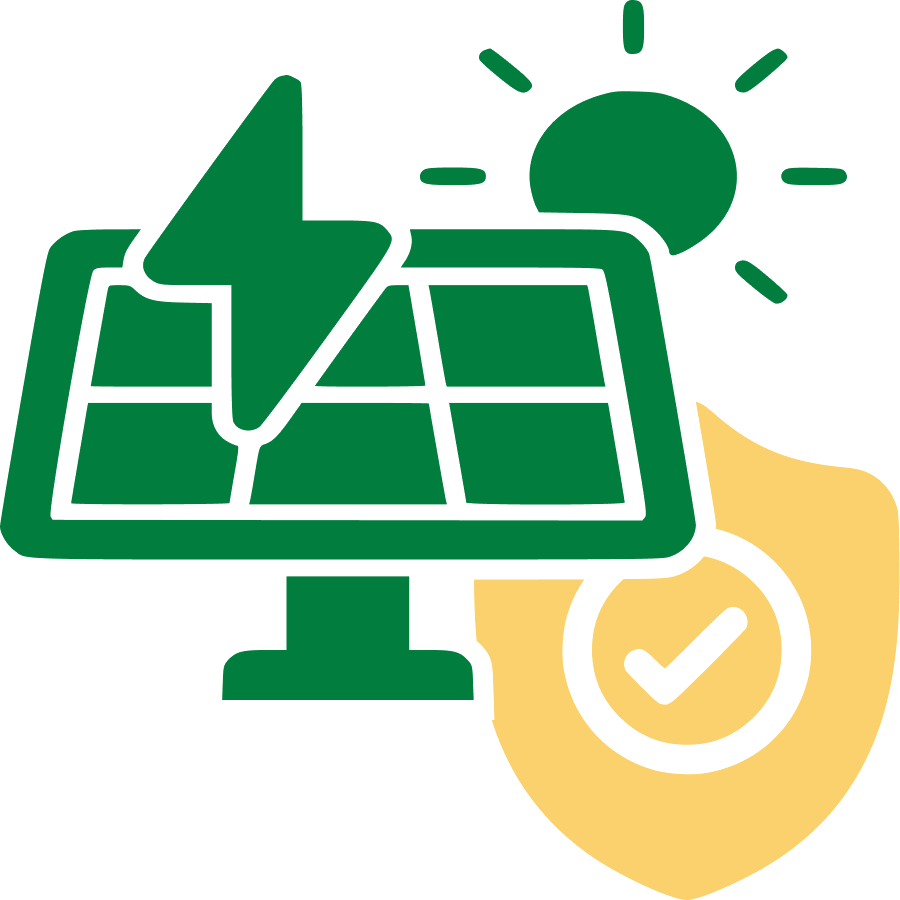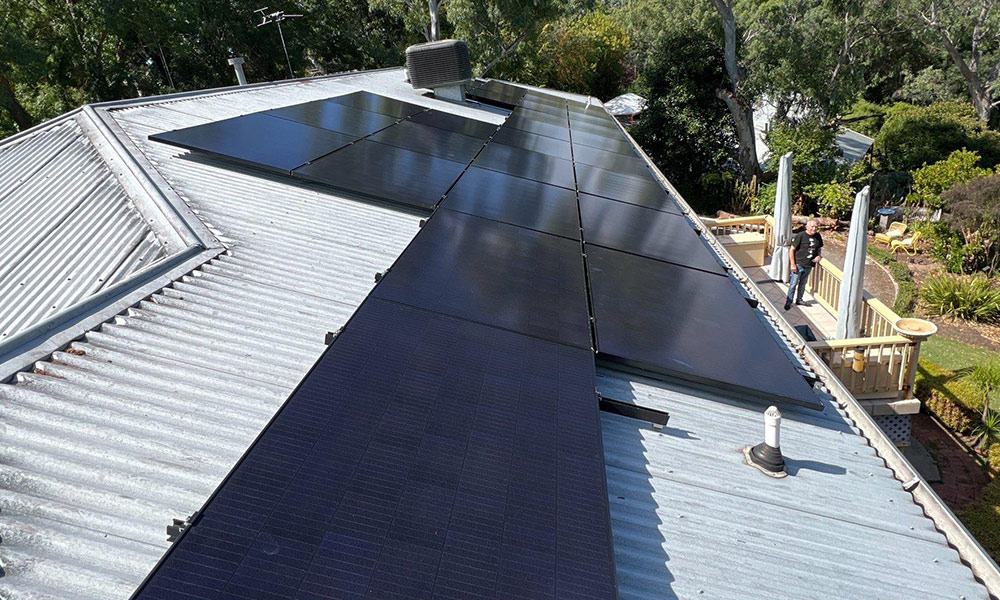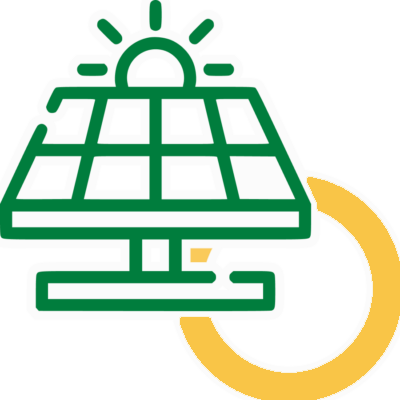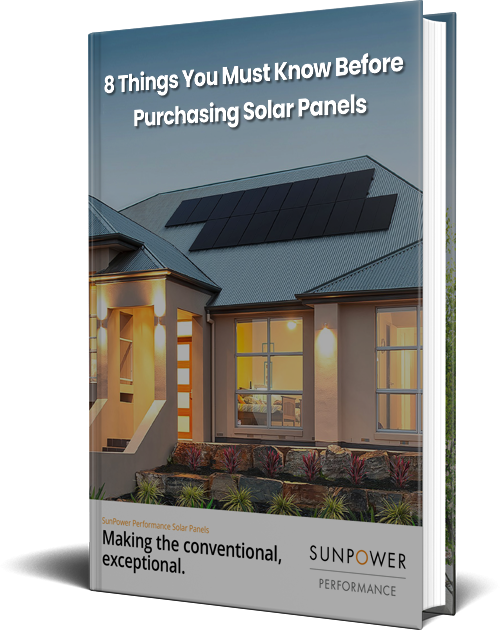
40 Year Warranty
We are Sunpower’s preferred installer, renowned for their industry-leading efficiency.

Guaranteed No Slavery Panels
Ethically and responsibly sourced supply chain.

Turbocharged Solar
Greater solar savings with Energy Buster is smarter approach.
Solar Systems
Sustainable 8kw Solar Systems For Larger Households
It’s never been easier to harness the power of the sun and enjoy significant savings on your electricity bills.
With an 8kW solar system, you can offset a substantial portion of your energy consumption, reducing your carbon footprint and contributing to a cleaner environment.
With over 2500+ solar installations, we offer a broad range of solar products such as panels, inverters, batteries, EV chargers and energy storage systems. We are a proud supplier of SunPower panels – both Maxeon and SunPower Performance series, with a 40-year warranty.
Our expert team will handle the installation process seamlessly, ensuring optimal performance and durability.
Take a step towards a greener future while enjoying the benefits of renewable energy. Contact us today for an obligation-free consultation and quote.
How do you know if 8kW system is enough?
If you consume around 30-35 kWh of electricity per day, a 8kW system will fit your needs. The average energy consumption in Australia is 30 Kwh per day for a household of 3-4 people.
To determine if an 8kW system is sufficient for your property, you should consider the following factors:
- Identify your daily and monthly energy consumption: Review your past electricity bills to understand your daily and monthly energy usage. Compare this with your average energy consumption to get an idea of how much of your electricity needs the system can cover.
- Roof Space: Assess the available roof space for solar installation. An 8kW system typically requires around 45-55 square meters of roof area. Ensure that your roof has enough unshaded space to accommodate the required number of solar panels.
- Implement Energy Efficiency Measures: Simple steps like using energy-efficient appliances, improving insulation, and adopting energy-saving habits can help optimize the effectiveness of a solar system and make an 8kW system more suitable for your needs.
- Assess Future Energy Needs: Anticipate any changes in your energy needs in the future. If you plan to add more appliances or expand your household, it’s essential to factor in potential increases in energy consumption.
- Consider Budget Options: Evaluate your budget for solar installation.Consider the upfront costs, available financing options, and potential return on investment through energy savings over time.
To accurately determine if an 8kW system is enough for your property, it is recommended to consult with a professional solar installer or energy expert. They can conduct a detailed analysis of your energy needs, evaluate your roof’s solar potential, and provide personalized recommendations based on your specific circumstances.
Selecting the right system size depends on your budget, available roof space, electricity use and future energy plans.

How much space will 8kW solar system take?
The space required for an 8kW solar system depends on various factors, including the wattage of the solar panels, their physical dimensions, and the layout of your roof. Generally, an 8kW solar system will require approximately 45-55 square meters of roof area.
The physical size of solar panels can vary based on their wattage and manufacturer. Standard residential solar panels typically have dimensions of around 165 cm by 99 cm and occupy approximately 1.5-1.9 square meters each.
You would need approximately 27 solar panels with a wattage of 300 watts each to achieve an 8kW solar system.
To determine the exact space requirements for your 8kW solar system, it is recommended to consult with a professional solar installer or use the specifications provided by the manufacturer of the specific solar panels you intend to use. They can assess your roof’s solar potential, consider any shading or obstructions, and design the optimal layout for the panels to maximize energy production.
Understanding your 8kW solar system options
When it comes to selecting the best types of 8kW solar systems in Adelaide, several factors should be considered. Here are some popular options:
Monocrystalline Panels
Known for their high efficiency and sleek appearance, monocrystalline panels are a top choice. They are made from single-crystal silicon, providing excellent performance even in low-light conditions.
Monocrystalline solar panels are perfect for residential, commercial, and off-grid properties where high efficiency and limited space are important factors.
Polycrystalline Panels
These panels are cost-effective and offer good efficiency levels. They are made from multiple silicon crystals and have a characteristic blue colour.
Polycrystalline solar panels are perfect for budget-conscious residential and commercial projects with ample available space for installation.
Hybrid Panels
These panels combine the benefits of traditional panels with additional features like energy storage. They allow you to store excess energy for later use, increasing self-sufficiency.
Hybrid solar systems are ideal for off-grid applications or areas with unreliable grid access, where a combination of solar power and energy storage is needed to ensure a consistent and reliable electricity supply.
String Inverter Systems
String inverters are a popular choice for 8kW systems. They convert DC power generated by the panels into usable AC power for your property. They are cost-effective and widely used in residential installations.
Microinverter Systems
In this system, each solar panel has its own micro inverter, allowing for independent power optimisation. They are ideal for installations with shading or complex roof layouts.
How much does an 8kw solar system cost?
The cost of in Adelaide can vary depending on several factors such as:
- Site Structure
- Environmental Surrounds
- Solar Panel Aesthetics
- Expected Solar Panel Performance
For an accurate quote tailored to your specific needs, reach out and speak to a member of the Energy Buster team.
Additionally, government incentives and rebates may be available that can help reduce the overall cost.
8kW solar system benefits








What is the installation process for an 8kW solar system?
The installation process for an 8kW solar system in Adelaide typically involves the following steps:
Step One: Initial Consultation
A solar installer will conduct an initial consultation to understand your energy needs, assess your roof’s suitability for solar installation, and discuss your preferences and budget.
Step Two: System Design and Quotation
Based on the consultation, the installer will design a solar system that meets your requirements. They will provide you with a detailed quotation that outlines the equipment to be used, installation costs, and any applicable warranties.
Step Three: Obtaining Permits and Approvals
The installer will handle the necessary paperwork and permits required for the installation, such as grid connection approvals and building permits. They will ensure compliance with local regulations and standards.
Step Four: Installation Day
Once all permits are obtained, the installer will schedule a convenient installation date. They will consider factors like weather conditions and any site-specific requirements.
Step Five: Roof Preparation
On the installation day, the installers will arrive at your property and prepare the roof for solar panel placement. This may involve cleaning the roof surface, making any necessary repairs, and ensuring a secure mounting system.
Step Six: Panel and Inverter Installation
The panels and inverters will be installed according to the design plan. The panels are securely mounted on the roof, and the inverters are typically installed near the main electrical panel or in a designated area.
Step Seven: Electrical Connection
The panels and inverters will be connected to your electrical system. This may involve wiring and ensuring proper grounding to integrate the solar system with your property’s electrical infrastructure.
Step Eight: System Testing and Commissioning
After the installation is complete, the solar system will undergo thorough testing to ensure proper functionality and performance. This includes checking the electrical connections, verifying panel output, and testing the system’s integration with the grid.
Step Nine: Explanation and Handover
Once the system is tested and operational, the installer will provide you with a comprehensive explanation of how the system works, including any monitoring features or maintenance requirements. They will also hand over any relevant documentation and warranties.
Step Ten: Final Inspections and Connection to the Grid
The installer will arrange for final inspections and connection to the grid, ensuring compliance with local regulations and safety standards.
If you think that purchasing solar panels is the right thing for you, then the next step is to decide on the best brand and solar system size. Get in touch with us by either calling us on (08) 7120 6377 or by filling out our fast free quote form.

 40 Year Warranty
40 Year Warranty











































